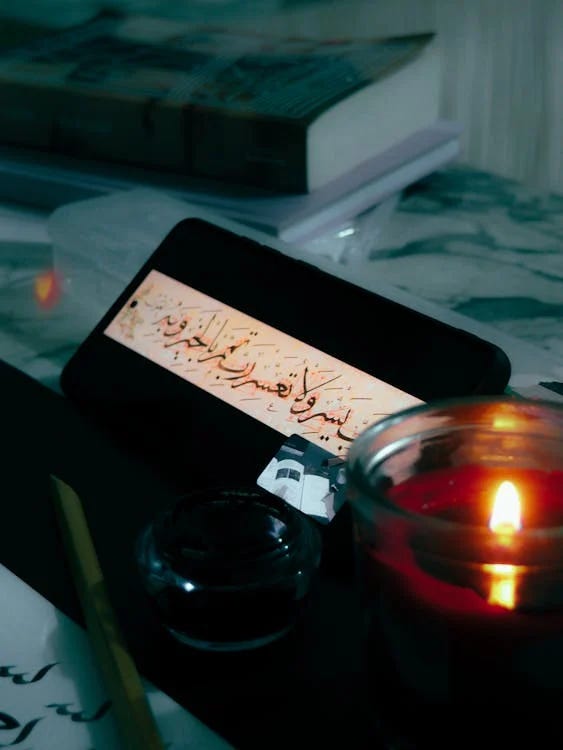What Makes Arabic Poetry So Unique and Beautiful?
Have you ever wondered why Arabic poetry sounds so charming, even if you don’t understand the words? Or why it has been memorized and recited for centuries, passed down like a treasure through generations?
Arabic poetry isn’t just words, it’s music, history, and deep emotion.
Its unique rhythmic meters, known as Al-Buḥūr (“Seas” of poetry), were crafted over a thousand years ago and continue to shape Arabic literature, music, and even daily speech.
But what exactly makes it so mesmerizing? Let’s dive into the secrets behind its beauty.
The Rhythm and Melody of Arabic Poetry
Arabic poetry is built on a rich rhythmic structure that gives it a musical quality, making it as enjoyable to listen to as it is to read. Unlike free verse in modern poetry, classical Arabic poetry follows precise metrical patterns known as Al-Buḥūr (“Seas” of poetry), developed by the linguist Al-Khalil ibn Ahmad over a thousand years ago. These rhythmic patterns create a natural flow, making verses easy to memorize and recite. This musicality is why Arabic poetry has often been sung or chanted, turning words into an almost hypnotic experience that resonates deeply with listeners.
Rich Imagery: How Arabic Poetry Paints Vivid Pictures
One of the most striking features of Arabic poetry is its ability to create vivid mental images through rich and detailed descriptions. Poets often draw from nature, using elements like the desert, stars, rivers, and animals to express deep emotions. A simple line about a Camel Walking In The Night can symbolize endurance and patience, while the mention of A Dying Flame might represent fading love. This ability to paint pictures with words makes Arabic poetry incredibly expressive, allowing readers and listeners to visualize emotions as if they were tangible.
The Power of Metaphor and Symbolism in Arabic Verse
Arabic poetry is filled with metaphor and symbolism, where words often mean more than they seem at first glance. The beloved in a poem may not always refer to a person, It can symbolize the poet’s homeland, wisdom, or even divine love. The desert might represent hardship, while wine can symbolize both worldly pleasures and spiritual enlightenment. These layers of meaning give Arabic poetry depth, allowing a single verse to hold multiple interpretations. This artistic use of metaphor is what makes Arabic poetry both intellectually engaging and emotionally profound.
Why Arabic Poetry Is Meant to Be Heard, Not Just Read
Unlike many other literary traditions, Arabic poetry has always been an Oral Art Form first and a written tradition second. For centuries, poets would compose and recite verses in public gatherings, where rhythm and intonation played a key role in delivering the full impact of the words. The way a poem is performed through pauses, voice modulation, and emphasis can completely change its meaning. This is why Arabic poetry is best experienced when heard aloud, as the sound itself enhances the emotions and imagery embedded in the words.
The Influence of Arabic Poetry on World Literature
Arabic poetry has had a profound influence beyond the Arab world, shaping literary traditions in Spain, Persia, and even Europe. During the Islamic Golden Age, Arabic poetic forms and themes spread to Andalusia, inspiring Spanish poets and, later, European writers during the Renaissance. The lyrical styles of Persian poets like Rumi and Hafez were heavily influenced by classical Arabic poetry. Even in modern times, echoes of Arabic poetic traditions can be found in various literary movements around the world, proving its timeless impact on global literature.
Arabic poetry’s beauty lies in its rhythmic flow, rich imagery, and deep symbolism, making it a powerful art form meant to be heard and felt. Its influence spans centuries, shaping world literature while evolving from classical to modern forms. Whether through structured meters or free verse, Arabic poetry continues to captivate hearts and minds.
Want to learn Arabic and experience its beauty firsthand? Send me a message on WhatsApp




